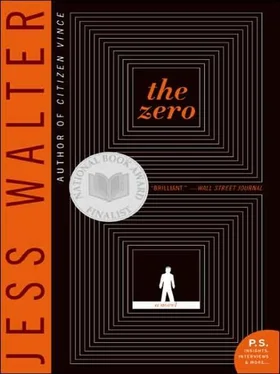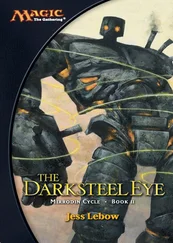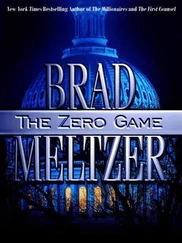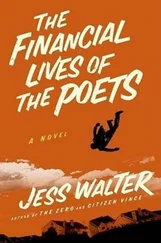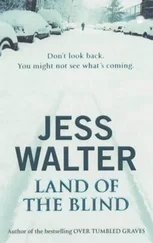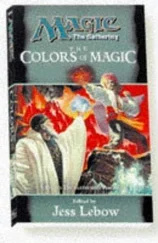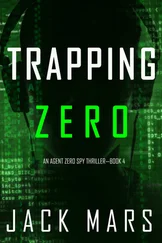Mr. Selios looked at the photo. “No. What is his name?”
Remy shrugged. “Bishir Madain. He knew your daughter.”
Mr. Selios stared at the picture. “I never heard of him.” He sighed. “But as I say, she did not share such details with me.”
“Okay.” Remy started to put the picture back but Mr. Selios reached out and stopped his hand. He stared at the picture and tears pearled in his eyes again.
Finally he let go of the picture and wiped at his eyes.
“Can I ask one more question,” Remy said. “You said April was estranged from her husband when he-”
“Yes,” Mr. Selios said. “For a few months, I think.”
“Do you know what happened between them?”
“All I know is what March told me… that Derek wasn’t right for her.”
“Was she… was April sad?”
“Please.” The man’s face drained of color. “He was her husband, Mr. Remy.”
“Of course. I’m sorry.” Remy handed the cup to Mr. Selios and backed out of the room.
THE SOUND of whiskey was what he craved sometimes. Tip a half-full bottle, like this twelve-year-old Jameson, and the bubbles made a tinny gurgle as they ran up the neck into the bigger part of the bottle. And the gurgle got deeper with each tip. He made the sound over and over and the warmth ran through his chest and into his armpits.
It was a shitty little hotel room: two double beds across from a TV on a swivel. The HBO movies for the month were on a card on the nightstand. Someone was watching porn in a room next door, or below; he could hear thumping and synthesized music and metronomic grunting. Remy made the whiskey sound again, got a little less warmth this time, and made his way to the door. It opened outside onto the second floor of a motor hotel, horseshoed around a parking lot with trucks and motor homes and a couple of square sedans. The streaks and floaters were mild out here. It was night but there was a full moon, and Remy could see across the parking lot to a long fallow field that seemed to stretch forever.
Still carrying the bottle he walked along the second-floor railing, down carpeted steps and into the parking lot. The freeway ran behind the motel, and this horseshoe faced away from it, into the flattened field. Remy crossed the parking lot and stood on the edge of the field. Behind him, the hotel was alone against the sky, like a ship run aground. A few trucks rumbled by on the freeway, but before him there was only the lavender sky and the burning hole made by a full moon. A bank of gray-white clouds was on the horizon, a perfect straight line at eye level, like the floor of a stage. The colors ran from black through purple to a bruised red to this gray-white line. Remy had never seen anything like it, and yet there was nothing to it. It was just a set of parallel lines: the line of the prairie and the line of the horizon and the line of the clouds, nothing but lines and the hot pit of a moon, nothing but lines and the flecks in his eyes and the sound of bubbles gurgling through the neck of a bottle.
When he opened his eyes, a man was standing next to him in the parking lot. He was someone Remy thought he recognized, although he couldn’t be sure. The man was in his sixties, Middle Eastern, with small, round glasses and a beautiful gray wool coat. He had short gray hair and several days of whiskers on his cheeks. The whiskers and the coat were so mismatched that Remy had trouble imagining them on the same man. They stood at the edge of the field, side by side, staring at the sunset.
“So many countries in this one country,” the man said, “nations spilling out into nations, bordered by mountain ranges and great rivers. I sometimes think that people here used to believe that when one country disappointed them, they could simply move west and find another one. But then you ran out of room.”
Remy considered the man again. He wore jeans, dirty at the knees, and a black T-shirt, and over it, bizarrely, that beautiful wool coat. He looked so familiar. “I know you,” Remy said.
“Do you?” The man looked full at Remy.
“Don’t I know you?” Remy asked.
“How could I possibly answer that? I suppose I could answer whether I know you, but it would be presumptuous of me to say who you know.”
Remy couldn’t think of anything to say. And even that seemed familiar. “Maybe you can just tell me if I’m east or west of Kansas City.”
The man nodded. “Yes. You are.”
Remy took another drink and considered the man again. And then it hit him. “No. Wait. I remember. In the city. In front of Ray’s. You handed me an envelope.”
“No,” the man said. “I did not.”
“Yes, you did.”
“What was in the envelope?” the man asked.
“I… I don’t know.”
“So you’re telling me that I handed you an envelope. But you can’t tell me what was in this envelope? This is not a very convincing story.”
“No, I guess not.” Remy stared out at the horizon again.
“You seem troubled.”
“Yeah. I am.” Remy laughed. “I can’t keep track of anything anymore. I slip in and out of my own life.”
“Sure,” the man said.
“I find myself in these situations. I don’t know how I got there, or what I’m doing. I don’t know what’s going to happen until after it happens. I do things that I don’t understand and I wish I hadn’t done them.”
“Maybe that’s what life is like for everyone,” the man said.
Remy took a long swig of whiskey. “Is it?”
“I don’t know. But what makes you think you’re so special?”
Remy considered the man again. “And you’re sure I didn’t see you in the city?”
“How can I possibly know what you have seen or not seen? How can I know what exists in the frames of your eyes? There are millions of people in that city. Am I to tell you that I have never been one of them? That I have never passed before your eyes? How can I possibly say what you’ve seen? No man has access to another man’s vision.”
“I’m going crazy,” Remy said.
The man looked at the horizon again. He tapped the bottle in Remy’s hand. “They say this makes a man crazy.”
“Who says that?”
“I don’t know. The wise. The sober. People who say things.”
Remy handed the man the bottle. “I almost killed myself once.” He was surprised to hear himself confiding in the man.
The old man took a swig. “When?”
“Recently.” Remy touched the stubble on the side of his head.
“How?” The man took another drink, then handed the bottle back.
“Shot myself in the head.” After a moment, Remy laughed. “Isn’t it odd that I just told you I tried to kill myself and you asked when and how, but not why ?”
“Why?”
“Well.” Remy stared at the ground, cast purple by the dye of the fading sun. “I don’t really know. At first I thought it was an accident. Or a joke. But I’m starting to think-” He looked at the man, then back down at the bottle in his hand. “ – that I was afraid of what I might do if I didn’t.”
“Yes,” the man said quietly. They watched the sunset together. Then, after a moment, the man reached in his coat and handed Remy another manila envelope. And then he walked away, across the parking lot, to a four-door sedan, which he climbed in without looking back.
Remy knew that if he waited long enough, he wouldn’t have to open the envelope, that whatever was going to happen would happen. This thought should have been freeing. It probably didn’t even matter if he threw the envelope away. But he found himself curious and so he opened it. There was a name, Assan al-Hafar – he knew that name, too, Assan – and an address for an apartment in a building on something called Treasure Island. Remy looked up, but the man’s car was gone, and the next thought he had was-
Читать дальше
